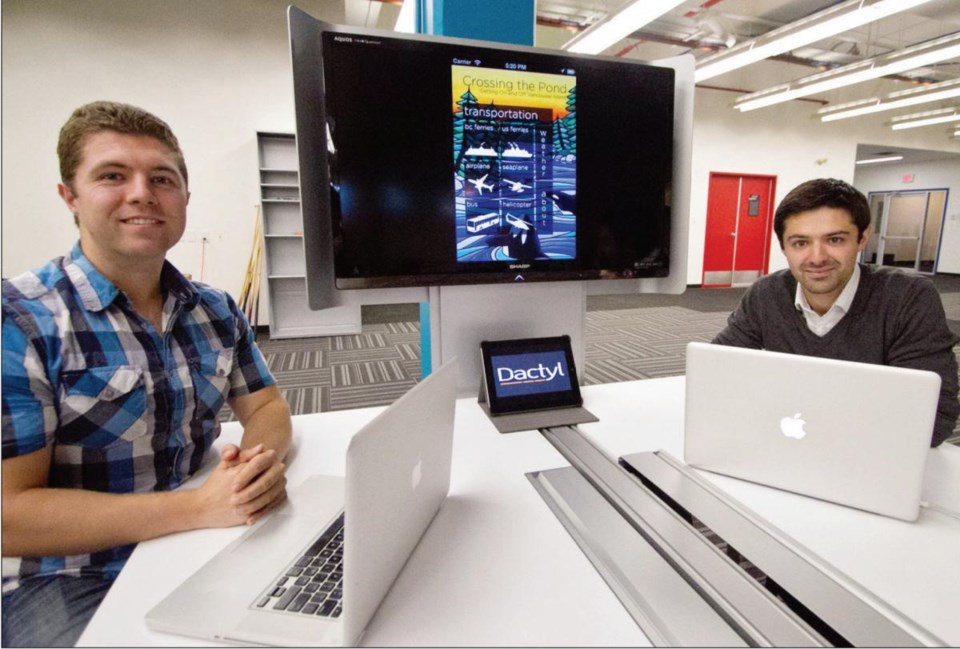When a company like Dactyl Applications makes a bet, it's safe to assume they've done the math and weighed the odds. After all, the Victoria software developer, which is still very much in its infancy, is based on math skills.
Dactyl represents the combined talents of brothers Curtis and Connor Duggan and Justin Barcelos.
Their business is based on the forecasts that the trend of iPads and other tablets in the classroom is about to explode and there will be a need for educational apps.
"It's making a bet on an industry trend that we think will happen probably in 2013-2015, so we're getting out one year ahead on that," said Curtis Duggan.
He may be right.
Apple started pushing its products into the education arena long before the iPad came onto the scene in 2010, and recently the company claimed annual sales of the tablet into the education market alone reached close to one million units.
While Apple's iPad sales continue to grow, Amazon, Google and Microsoft are all pushing similar products into the same field.
"In the next few years we expect there will be millions of tablets in schools," said Duggan.
And Dactyl, which is about eight months old, intends to be ready with easy-to-use and engaging educational software.
"We want this to be the default software, seen as an indispensable addition to the classroom," said Duggan, noting they are targeting teachers, parents and school district decision-makers who determine what appears in a classroom.
The company's first product, Multiflow, is an application for testing and improving multiplication skills.
It works on the principles of adaptive learning and playing games, as the questions posed to those using the app get tougher as the person answering them gets them right, and conversely scales back to simpler questions when the user gets into difficulty.
"It may seem like it's flashcards, but the application remembers how well you're doing," said Barce-los.
"It keeps you at an optimal level rather than giving you random questions like 1x1 which it knows you already know.
"And we have tried to 'game-ify' the times tables so kids come back. They have a score and they want to beat that level and score and their friends who are playing in the classroom."
Dactyl also has Flowplus available - the same principles applied to an app testing addition and subtraction.
The company has devel-ped a not-yet-released division app and is working on an app related to learning how to play music, and Duggan said they can see the expansion to apps for grammar, language learning and phonics.
So far they have sold about 6,000 copies of the apps, at $1.99 per download, and the company has branched out to develop apps for other companies as a secondary stream of income - basically keeping the lights on as they work on getting their proprietary software out to the market en masse.
They have already released a free app called Crossing the Pond.
Barcelos said it targets the tourism market as it aggregates the main travel tools to get to Victoria - ferries, airport and the like - offering schedules, routes and links to reservations, weather and maps all in one location.
Currently Dactyl's apps are only available for the iPad, but the company will be developing for Android and Amazon tablets.



